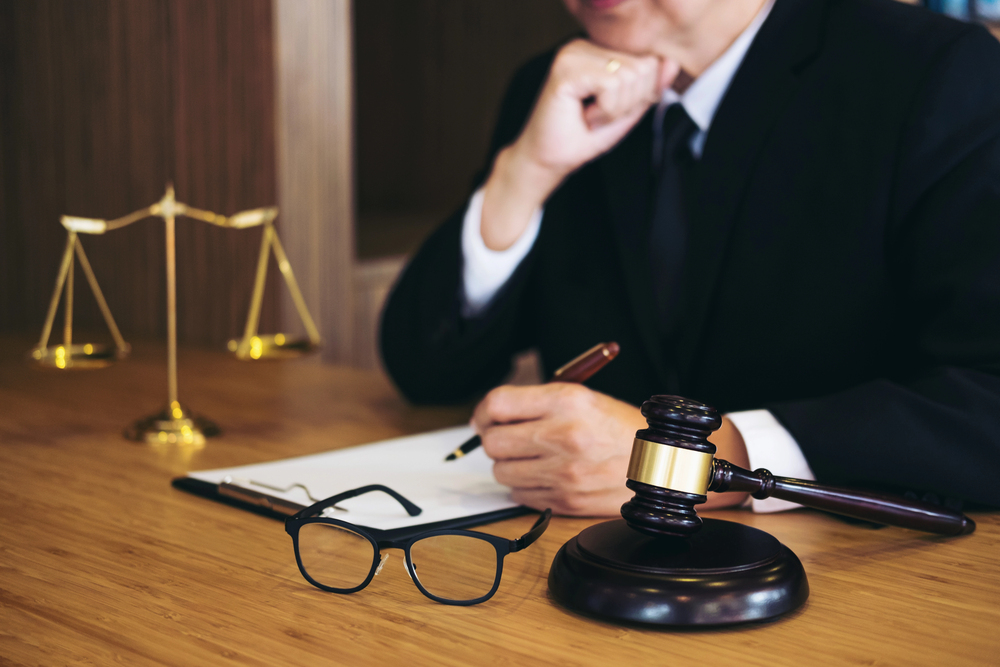Now Reading: Are You Getting the Maximum Value of Your Personal Injury Claim?
-
01
Are You Getting the Maximum Value of Your Personal Injury Claim?

Are You Getting the Maximum Value of Your Personal Injury Claim?
Some things are simple facts in life. Taxes fall into this category. Another one is that car accidents can be expensive. Suddenly you’re dealing with surprise medical expenses and property damage costs. Adding to your problem, your injuries may be forcing you to miss work.
Now, you can’t even rely on your weekly paycheck. This makes your personal injury settlement more important than ever. We’re covering some simple steps for maximizing the value of an injury claim. This way, you’re less likely to be stuck covering accident-related expenses out of your pocket.
Take a Minute to Get Your Bearings
Car accidents are jarring, even if your vehicle only moves a few inches. Just imagine how confusing it can be if the accident sends your vehicle spinning around. Take a minute to get your bearings. You don’t want to open your door into oncoming traffic.
If your vehicle is struck hard enough to send it spinning, you may open your door only to find you’re at the edge of a steep drop-off. This is also a great time to check yourself over for any injuries. Are there passengers in your vehicle?
If so, check them for injuries. This way, you know if you need first responders or only the police. Don’t forget to find out if the other driver’s okay. However, don’t start talking about the car accident. Keep these details private until you talk to a personal injury attorney.
Don’t Wait to Report the Vehicle Collision
States have different rules requiring when you must report a vehicle accident. This usually applies to property damage amounts. For example, any accident resulting in property damage over $500 must be reported in Texas. The Golden State doesn’t require immediate reporting until damage amounts exceed $750. What all states have in common is all vehicle collisions must be immediately reported if injuries and/or fatalities are present.
Besides, immediately reporting the car accident can help support your accident claim. Not only will you get an accident report, but the evidence is also fresh. Accident scene investigators can usually get a better idea of fault when the collision site hasn’t been disturbed. If your accident occurs in a state following comparative negligence rules, determining fault is often crucial. If you’re assigned part of the blame, it’s going to affect your settlement amount.
If property damage is minimal and there aren’t any injuries or fatalities, you can hold off on reporting the collision. Most states give accident victims 10 days or so to file an official report. However, it’s a good idea to check your local ordinances. You may have less than ten business days.
Your Health Comes First
If you’re up and walking about, it doesn’t necessarily mean you’re uninjured. Some injuries like internal bleeding aren’t immediately obvious. Even a simple fender bender in a grocery store parking lot can cause injuries. Don’t wait until you start noticing serious signs and symptoms before scheduling a doctor’s visit. If your injuries are severe, you probably left the accident scene in the back of an ambulance.
Your medical costs are usually covered in your personal injury claim. Yep, this can even include your initial visit with your healthcare provider. Keep every scrap of paper relating to your healthcare. This can even include your prescriptions and rides to medical appointments.
To help ensure you can recover your accident claim’s maximum value, hang on to every bill and receipt no matter how small. You’re also going to need copies of your medical records. These are often crucial when you’re establishing your non-economic damages like pain and suffering.
Try to Gather Some Evidence at the Accident Scene
If you’re being loaded into the back of an ambulance, don’t worry about this step. Just focus on your health and recovery. Let the officials and your personal injury lawyer handle this step. With that being said, if you’re up and moving around, grab your smartphone.
Take some pictures of the accident scene. Try to focus on any accident debris. Get plenty of shots of your vehicle damage and its position after the accident. Sometimes where your vehicle ends up after the collision can help establish fault.
Look around for any surveillance and traffic cameras. There are usually some around. Even doorbell cameras can record vehicle accidents. Make a note of the cameras’ locations and pass it on to your accident attorney. Your injury lawyer can subpoena the footage and use it as supporting evidence.
Watch What You Say
This can seem a little paranoid. After all, the insurance company doesn’t have a spy following you around. However, you should be careful what you say to witnesses, the authorities, and the other involved motorists.
The insurance adjusters are going to talk to the same witnesses. They also get a copy of your accident report. The authorities may jot down what you say, and this means it’s being reviewed by the insurance company. You don’t want the insurance company to be able to use your words against you, so watch what you say. We’re definitely not telling you not to answer the authorities’ questions. Just keep your answers brief and honest and never admit fault.
Have Plenty of Patience
Don’t be surprised if the insurance company offers you a settlement before you’re done adding up your damages. You have the right to accept any insurance settlement offer. Your personal injury attorney can only provide advice. Even though it may be tempting to walk away with a settlement check, it’s rarely the best idea.
You can’t receive your claim’s maximum value until you calculate your damages. If you accept a settlement offer, your personal injury claim is considered closed. Nope, you usually can’t reopen a closed accident claim.
Don’t Put Off Hiring an Injury Attorney
You may think you can handle the personal injury claim process on your own. You’re probably even right, but you’re less likely to recover your accident claim’s maximum value. If you want to receive your claim’s full value, partner with an experienced accident attorney.










